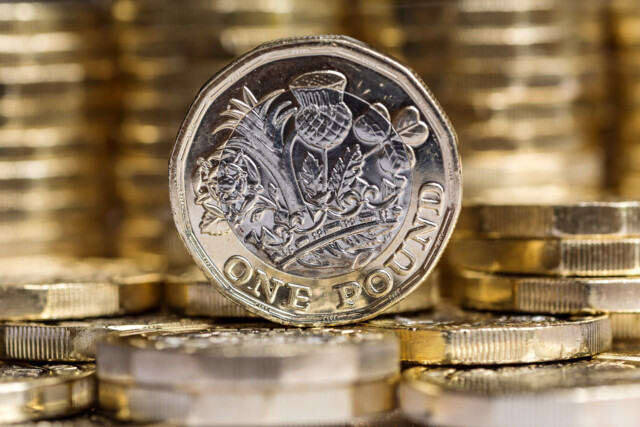THE pound has risen against the dollar after Boris Johnson pulled out of the race to become the next Prime Minister, clearing a path for Rishi Sunak.
Sterling went up to $1.14 after Boris dropped out of the contest, saying it was “not the right time” for him to stand.
The pound is up against the dollar as Boris pulls out of race to be PM
The pound was sitting at around $1.11 on Friday – the day after Liz Truss stepped down as PM just six weeks into the job.
Former Chancellor Rishi Sunak is now on course to enter No.10 as soon as Tuesday.
That is unless his other rival Penny Mordaunt manages to drastically improve her supporter base.
Wannabe PMs must have the backing of at least 100 Tory MPs to make the first leadership ballot.
So far Mr Sunak has 157 while Ms Mordaunt is stuck on 25.
The value of the pound has been a rollercoaster recently, as markets were spooked by political turmoil.
Markets rallied last Monday after Jeremy Hunt ripped up most of last month’s mini-Budget policies.
The Chancellor announced the planned 1p cut to the basic tax rate will be delayed “indefinitely” and said the energy price guarantee would only last until April instead of the planned two years.
Following these u-turns, the pound was trading 1.3% higher against the dollar to $1.13.
And the pound rallied again on Thursday, shooting up to $1.13 against the dollar, in a damning response to Liz Truss’ resignation.
The pound is slumping because investors are worried about the huge increase in government debt required to fund the £45 billion of tax cuts and energy support relief for households and businesses.
There were fears about how the mini budget’s massive tax cuts would be funded and a lack of official costing didn’t help.
A huge increase in public borrowing also comes at the worst possible time as government debt has become much more expensive.
The pound had already been falling against the dollar this year because of worries about rising prices (inflation) caused by the energy crisis.
The Bank of England has been widely criticised in not being aggressive enough at raising interest rates to tackle runaway inflation, including last week when it lifted them by 0.5% to 2.25%, below what the market expected.
What does a weak pound mean for me?
It’s a blow for anyone buying holiday cash now as you’ll get fewer dollars for each pound you exchange.
If the value of the pound versus the dollar is $1.05/£1 then for every £100 you change up, you get £105 dollars.
That means buying anything abroad seems more expensive, and can impact on what you can afford to do on your holiday.
There are some steps you can take to make your travel money go further.
These are specific debit and credit cards designed for using abroad, which won’t charge you for each transaction like a standard card will.
In the coming weeks shoppers will face higher prices because British companies import goods in dollars, particularly fashion, electronics and ingredients and will have to pass that on.
Energy bills will keep rising because despite gas and oil prices falling, the market is priced in dollars.
The boss of Carlsberg Martsons, Paul Davies, has warned that pints of beer could also get more expensive because brewers import hops from overseas.
The weak pound is also hitting drivers in the pocket, despite petrol prices falling.
Oil is priced in dollars and the weak pound has already added almost a fiver more to a tank of fuel when filling up at the pumps, according to the AA.
Further action by the BoE to increase rates could impact the cost of borrowing, including loans, credit cards and mortgage repayments more expensive.
It means more misery for households who are already grappling with a cost of living crisis.
A weaker pound can also have an impact on the value of your pension or any investments you might have.
This is because if you hold shares in a company based overseas, their value is affected by currency movements.
If you notice a dip in the value of your investments, it’s best not to panic or be tempted to sell.








